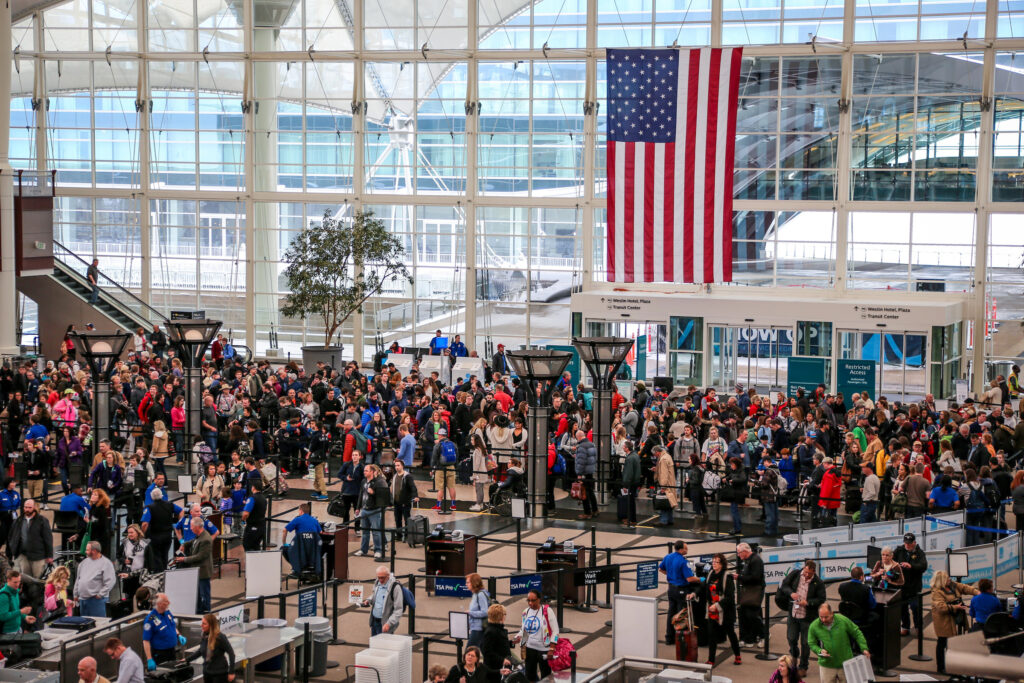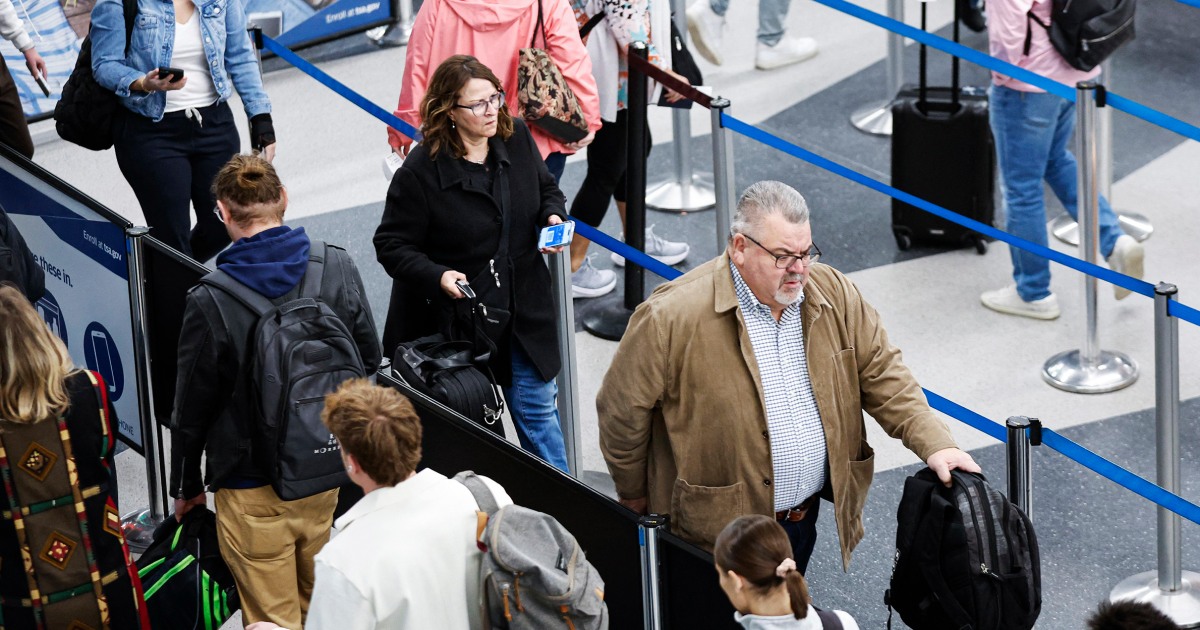Travel
Skift Global Forum 2024: How Tech and Innovation Are Shaping the Future of Travel – Business Traveler USA

The Skift Global Forum 2024 brought together the sharpest minds in the travel industry for a dynamic exchange of ideas and insights. From exploring cutting-edge trends to tackling the sector’s biggest challenges, the event highlighted how travel continues to adapt to fast-changing consumer demands and new technologies.
Kicking things off with a bang, U.S. Deputy Secretary of State Richard Verma announced a game-changing development for American travelers: the launch of online passport renewal, signaling a bold step towards a more seamless, tech-driven travel experience.
Digital Transformation in Travel
Verma highlighted that up to 50 percent of future renewals could be completed online, addressing the surge in passport demand. Interestingly, he also noted India’s growing importance in U.S. tourism, with visitor arrivals showing a 52 percent increase compared to pre-pandemic levels in 2019.
Photo: Courtesy of Alaska Airlines
Data from the first quarter 2024 highlights a challenging recovery for many traditional markets. Countries like Canada, Germany, France, Mexico, and the U.K. have shown slight declines in arrivals, ranging from -1 percent to -19 percent.
Meanwhile, China, once a primary source of visitors, has seen a significant drop, with arrivals down 45 percent, according to data from Skift Research and U.S. NTTO, which reflects trends as of July 2024.
Short-Term Rental Market
The competitive landscape of the short-term rental market took center stage as Glenn Fogel, CEO of Booking Holdings, discussed the company’s expansion in this sector. Booking now handles two-thirds of Airbnb’s room nights and has outpaced its competitor’s growth in 12 of the past 13 quarters.
Fogel’s insights extended beyond market share, touching on the changing nature of travel search. He noted an increase in travel-related searches on TikTok over Google, underscoring the growing influence of social media in travel planning and marketing.

One Key / Photo: Courtesy of Expedia
While the company boasts nearly 8 million short-term rental listings worldwide, its presence in the U.S. remains limited, which Fogel sees as a major growth opportunity.
Expedia Group CEO Ariane Gorin acknowledged that some of the company’s brands faced challenges during a recent technology migration. However, Gorin highlighted that Expedia, which experienced the least disruption among the core brands, performed well, achieving a 20 percent increase in room nights during the second quarter.

Pool deck at District 225, Miami, a partnership with Airbnb / Photo: Courtesy of Related Group
Gorin is now focusing on expanding Vrbo’s customer base. The tech migration is expected to support this effort by enabling Vrbo and other Expedia Group brands to share inventory more efficiently. Additionally, the company has introduced new comparison shopping features and is enhancing its group trip planning tool, among other updates.
The new CEO emphasized that the key differentiator of Vrbo from Airbnb is that you get your rental without someone looking over your shoulder, ensuring that you have the property all to yourself. She also discussed the company’s One Key loyalty program, which is set to expand beyond the U.S. and UK.
Security in Travel
According to David Pekoske, U.S. Transportation Security Administration (TSA) administrator, security is a big concern in the travel industry.
Pekoske discussed the TSA’s efforts to improve security using advanced technologies such as better cybersecurity, biometrics, and easier screening processes.
Pekoske said, “Our goal is to stay ahead of these threats and have the right tools and processes to keep things safe.”

Photo: Courtesy of Denver International Airport.
The TSA is improving security and efficiency, ensuring airports, pipelines, and railways are safe from cyberattacks and insider threats. They’re also getting ready to recover quickly if something goes wrong.
At major airports, they’re using facial recognition technology for better identity checks. This has options to protect privacy and to let passengers choose not to use it.
New CT scanners for checking luggage let TSA agents see 3D images of carry-on bags. This makes things easier for passengers because they don’t have to take out electronics or liquids.
They also have better scanners to reduce false alarms and make passenger checks more efficient. In the future, the TSA wants to make it easier to connect international and domestic flights by 2025. They want the same security standards, which will help reduce airport congestion.
Chasing Swifties
Technology’s role in shaping travel’s future was a recurring theme throughout the forum. United’s Chief Commercial Officer Andrew Nocella spoke of United introducing free Starlink WiFi on all flights, promising a “living room-like experience” in the air.
He also assured customers that fares would stay the same due to the free WiFi. “Starlink will be free. I think that’s the least exciting part of our announcement, quite honestly, because this is about reliability and access,” he remarked.

Photo: Courtesy of United
Nocella also discussed the impact of Taylor Swift’s “Eras Tour” on travel demand, revealing that United tracks events like Swift’s concerts to ensure they have enough capacity.
Swift’s tour has led to a 25 percent increase in UA bookings, underscoring the power of celebrity events to influence travel patterns. “We track Taylor Swift to make sure we have enough seats. It’s real, and it happens time after time,” Nocella said, adding that demand spikes during the weekends she performs.
Longer-Term Short-Terms
Airbnb CEO Brian Chesky offered insights into the company’s future direction, revealing plans to diversify beyond short-term rentals. Chesky expects to launch several new initiatives annually, each with billion-dollar revenue potential. He also highlighted the growing importance of long-term stays, with 17 percent of Airbnb bookings exceeding 30 days.
This trend suggests a blurring of lines between travel and everyday living, potentially reshaping how we think about accommodation and remote work.

Photo: Courtesy of Airbnb
When asked about the now one-year-old New York ban on Airbnb, Chesky noted that rents in the city went up by 3 percent and hotel bookings by 7 percent after the ban, meaning the ban on the short-term rental platform has “not been beneficial” to New York residents or guests. As a true engineer, he added that if New York wanted Airbnb back, the company would help it solve its problems.
Chesky emphasized that many in Silicon Valley are well-intentioned, saying, “Most of us didn’t get in it for the money. If I tried to get into Airbnb for the money, I wouldn’t have started by renting free air mattresses.” Despite their success, he highlighted that many in the industry are driven by a passion for building and creating.
Artificial Intelligence Prospects
Regarding AI, Chesky described its potential as transformative, likening its impact to the Industrial Revolution’s. He expressed the importance of getting AI “right” and noted that while Airbnb had anticipated AI advancements in its platform, the changes hadn’t fully materialized.

Photo: OpenAI. Courtesy of Zac Wolff / Unsplash
However, he remains optimistic, asserting, “AI is going to happen a lot faster… This is probably going to change the world more than the industrial revolution.”
According to Certares Founder and Senior Managing Director Greg O’Hara, health, wellness, and longevity could all integrate travel opportunities, presenting a lucrative market. “We expect to make a nine-figure investment in this space,” said O’Hara, founder of Certares, a private equity firm managing nearly $11 billion in assets.
O’Hara believes that the opportunity for Americans to access more affordable wellness services abroad, particularly those focused on longevity, represents a multi-billion-dollar market for the travel industry.
JetBlue’s Premium Haunt
Finally, JetBlue CEO Joanna Geraghty explored the airline industry’s challenges and innovations. Despite facing setbacks like the halted Spirit Airlines merger, JetBlue focuses on attracting premium travelers while maintaining its low-cost identity.

Photo: Courtesy of Helwing Villamizar
Geraghty’s discussion of JetBlue’s new approach to airport lounges—smaller, more exclusive, and tailored to select travelers—reflects the industry’s broader move towards personalized, high-quality experiences.
The CEO also aimed at the state of existing airline lounges, describing them as often overcrowded and uninspired. JetBlue’s approach will be different: smaller, more exclusive, and tailored to select travelers, particularly its Mosaic members and future premium credit card holders.
“We want to avoid the long lines and underwhelming experience that other lounges often provide,” Geraghty noted.
The new JetBlue CEO also discussed her current strategy of focusing on organic growth rather than mergers or acquisitions, especially in light of the failed merger with Spirit. Despite the administration’s stance on airline consolidation, she remained optimistic about JetBlue’s standalone potential. “We have a great brand and product. Now, it’s about executing our core strategy,” she said.

Photo: Mint Suite. Courtesy of JetBlue
Geraghty was also candid about the challenges of operating out of New York, where JetBlue is the largest carrier by flights. She pointed to the city’s notoriously congested airspace and inefficiencies in air traffic control as ongoing issues.
“New York is a tough market, but it’s our home,” she said, calling for improvements in air traffic management to reduce delays and enhance the customer experience.
The CEO explained, “The DOT has to fix our traffic control, and it’s mostly an issue in New York. There are other parts in the United States where there’s some pressure, but New York is by far the most significant challenge, I think, in the ATC system,” she said.

Photo: © The Port Authority of New York and New Jersey
“And while we support things like refunds for customers and taking care of customers when there’s disruptions, we need the FAA and the DOT to continue to step up to fix the underlying issues because none of us should have to deal with some of the challenges,” Geraghty added.
When asked how she felt about her name being linked to words like trailblazer, pioneer, or role model, Geraghty said, “Uncomfortable because I don’t view myself that way. At the end of the day, I feel that I’m in this role for a period of time to help shepherd jetBlue through a challenging period where we’re coming out of.”
As for the difference between being a COO and a CEO, Geraghty said, “If you run an airline, you’re always focused on operations.”
Credit Card Emergence
The forum revealed several key trends shaping the travel industry’s future. Credit card companies are emerging as potential disruptors in the travel loyalty space, while changes in search engine algorithms are democratizing the online travel agency landscape.
Despite economic challenges, the appetite for travel remains strong, with half of U.S. travelers anticipating increased travel spending in the coming year.

Air travel mileage rewards and perks / Photo: helen111/Rob Goebel/Adobe Stock
Perhaps most tellingly, the forum highlighted a fundamental shift in the perception of travel. Once considered a luxury, travel is increasingly considered a necessity, repositioning itself alongside basic needs in Maslow’s hierarchy. This shift suggests that the industry is becoming more recession-resistant, with travel integrated into everyday life rather than being an occasional indulgence.
As the lines between airlines, hotels, and online travel agencies continue to blur, the future of travel points towards more holistic, seamless experiences.
From wellness-focused trips to technologically enhanced journeys, the industry is poised for transformation. The Skift Global Forum 2024 showcased these changes and highlighted the adaptability of a sector that continues to evolve in the face of global challenges.









